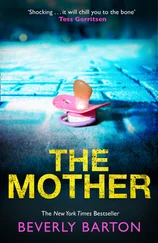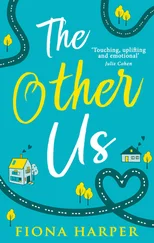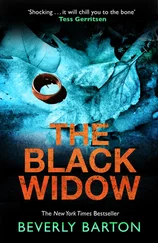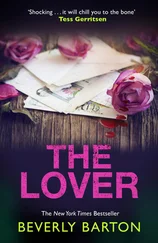I can’t tell her how I started lying awake, wishing Glen were dead. Well, not dead exactly. I didn’t want him to be in any pain or suffer or anything. I just wanted him not to be there anymore. I would fantasize about the moment when I’d get the call from a police officer.
“Mrs. Taylor,” the deep voice would say, “I’m so sorry, but I’ve got bad news.” The anticipation of the next bit used to make me almost giggle.
“Mrs. Taylor, I’m afraid your husband has been killed in an accident.”
I then saw myself—really saw myself—sobbing and picking up the phone to ring his mum and tell her. “Mary,” I’d say, “I’m so sorry. I’ve got some bad news. It’s Glen. He’s dead.”
I can hear the shock in her gasp. I can feel her grief. I can feel the sympathy of friends at my loss, gathering my family around me. Then the secret thrill.
Me, the grieving widow. Don’t make me laugh.
Of course, when it really happened, it didn’t feel nearly as real. For a moment his mum sounded almost as relieved as me that it was all over; then she put the phone down, weeping for her boy. And there were no friends to tell and just a handful of family to gather around me.
Kate Waters chirps up about needing the loo and making another cup of tea, and I let her get on with it, giving her my mug and showing her the downstairs bathroom. When she’s gone, I look around the room quickly, making sure there’s nothing of Glen’s out. No souvenirs for her to steal. Glen warned me. He told me stories about the press. I hear the toilet flush, and she eventually reappears with a tray and starts again about what a remarkable woman I must be, so loyal.
I keep looking at the wedding picture on the wall above the gas fire. We look so young, we could’ve been dressing up in our parents’ clothes. Kate Waters sees me looking and stands to take the photo off the wall.
She perches on the arm of my chair, and we look at it together. September 6, 1989. The day we tied the knot. I don’t know why, but I start to cry, my first real tears since Glen died. Kate Waters puts an arm around me.
THREE
The Reporter
WEDNESDAY, JUNE 9, 2010
Kate Waters shifted in her chair. She shouldn’t have had that cup of coffee earlier—what with that and the tea, her bladder was sending distress signals and she might have to leave Jean Taylor alone with her thoughts. Not a good idea at this stage of the game, especially as Jean had gone a bit quiet, sipping her tea and gazing into the distance. Kate was desperate not to pause the moment and damage the rapport she was building with her. They were at a very delicate stage. Lose eye contact and the whole mood could change.
Her husband, Steve, had once compared her job to stalking an animal. He’d had a glass too many of Rioja and was showing off at a dinner party.
“She gets closer and closer, feeding them little bits of kindness and humor, a hint of money to come, their chance to give their side of the story, until they are eating out of the palm of her hand. It’s a real art,” he’d told the guests around their dining room table.
They were his colleagues from the oncology department, and Kate had sat, doing her professional smile and murmuring, “Come on, darling, you know me better than that,” as the guests laughed nervously and sipped their wine. She’d been furious during the washing up, sloshing the suds over the floor as she threw pans into the sink, but Steve had put his arms around her and kissed her into a reconciliation.
“You know how much I admire you, Katie,” he’d said. “You’re brilliant at what you do.”
She’d kissed him back, but he was right. It was sometimes a game or a flirtatious dance, to make an instant connection with a suspicious—even hostile—stranger. She loved it. Loved the adrenaline rush of getting to the doorstep first, ahead of the pack, ringing the bell and hearing the sounds of life inside the house, seeing the light change in the frosted glass as the person approached and then, as the door opened, going into full performance mode.
Reporters had different techniques on the doorstep: One friend she’d trained with called it his “last puppy in the basket” look to get sympathy; another always blamed her news editor for making her knock on the door again; and one had once stuffed a pillow up her jumper to pretend she was pregnant and asked to use the loo to get in.
Not Kate’s style. She had her own rules: Always smile; never stand too close to the door; don’t start with an apology; and try to distract from the fact that you’re after a story. She’d used the bottle-of-milk thing before, but milkmen were a dying breed. She was very pleased with herself for getting through this door with such apparent ease.
In truth, she hadn’t wanted to come in the first place. She needed to go into the office to finish her expenses forms before her credit card bill came through and cleaned out her bank account. But her news editor was having none of it.
“Go and knock on the widow’s door—it’s on your way in,” Terry Deacon shouted down the phone above the radio news headlines blaring out beside him. “Never know. Today might be your lucky day.”
Kate had sighed. She knew immediately who Terry meant. There was only one widow everyone wanted to interview that week, but she also knew it was a well-trodden path. Three of her colleagues at the Post had already tried—and she was sure she must be the last reporter in the country to knock on this particular door.
Almost.
As she reached the turn onto Jean Taylor’s road, she automatically checked for other press and immediately spotted the man from The Times , standing by a car. Boring tie, elbow patches, and a side part. Classic. She edged her car forward as the traffic crawled along the main road but kept one eye on the enemy. She’d have to go around the block again and hope he’d gone by the time she got back.
“Bloody hell,” she muttered, signaling left and swinging down a side street to park.
Fifteen minutes and a flick through the dailies later, Kate put her seat belt back on and restarted the car. Her phone rang, and she dug deep into her bag to find it. Fishing it out, she saw Bob Sparkes’s name on the display and turned off the engine.
“Hello, Bob. How are you? What’s happening?”
Detective Inspector Bob Sparkes wanted something; that was obvious. He wasn’t the sort of bloke to ring for a chat, and she bet herself the call would last less than sixty seconds.
“Hi, Kate. Good, thanks. Quite busy. You know what it’s like. Got a couple of cases on the go but nothing interesting.
“Look, Kate, just wondered if you were still working on the Glen Taylor case.”
“Christ, Bob, have you got me on CCTV or something? I’m just about to go and knock on Jean Taylor’s door.”
Sparkes laughed. “Don’t worry—you’re not on the surveillance list as far as I know.”
“Anything I should know before I see her?” Kate asked. “Anything new since Glen Taylor died?”
“No, not really.” She could hear the disappointment in his voice. “Wondered if you’d heard anything. Anyway, I’d appreciate a heads-up if Jean says anything.”
“I’ll give you a call afterward,” she said. “But she’ll probably slam the door in my face. That’s what she’s done to all the rest of the reporters.”
“Okay, speak later.”
End of. She looked at the phone and smiled. Forty-one seconds. A new record. She must tease him about it next time she saw him.
Five minutes later she’d cruised down the Taylors’ newly media-free street and walked up the path.
• • •
Now she needed the story.
Oh, for God’s sake, how can I concentrate? she thought, digging her nails into her hand to distract herself. No, no good.
Читать дальше












